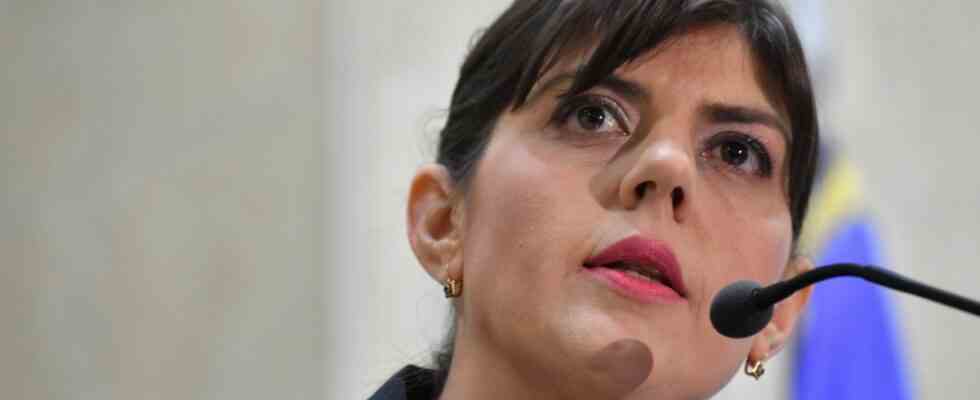Access day was shortly after the first advent. On November 29 of last year, public prosecutors, police officers and tax investigators carried out raids in 14 EU countries on the trail of a suspected fraud network with 9,000 companies and more than 600 suspects. Based on tips from Portugal, the European Public Prosecutor’s Office (EPPO) coordinated the work of 20 investigative authorities, identified several suspected criminal groups and determined tax damage of 2.2 billion euros. Project name: Operation Admiral. On the day of the searches, the head of the authorities, Laura Kövesi, spoke of the “biggest European VAT fraud discovered to date”. “Without EPPO, such an operation would have taken years to prepare,” she said, “or, more likely, it would never have happened.”
It was the most spectacular action to date by an authority that only started work in mid-2021. In accordance with the dimensions of this case, it can be found prominently in the current annual report, which the authority published on Wednesday. Accordingly, the officials are currently investigating in 1117 cases with an alleged total damage of 14.1 billion euros. Almost half of this sum is accounted for by sales tax fraud, through which, according to Europol estimates, the countries of Europe lose around 50 billion euros every year. In the first full calendar year since it was founded, the EUStA opened 865 investigations. They are primarily managed by the 114 delegated prosecutors in the participating countries – because while the authority at the headquarters in Luxembourg is coordinating all investigations, suspects continue to be prosecuted and charged under national law.
With the EUStA, the EU states have for the first time created a Europe-wide authority in the area of criminal prosecution and thus partially communitized an original national responsibility. This is probably one of the reasons why only 22 member states have joined the project so far: Poland, Hungary and Sweden have so far been out; Denmark and Ireland only participate with reservations. The EPPO first and foremost takes on all cases in which the EU budget (2021 expenditure: 228 billion euros) suffers financial damage.
114 ongoing proceedings in Germany
This also includes cross-border VAT fraud if the damage exceeds ten million euros. For example, as in the case of Operation Admiral: suspected criminal companies that sell electronic devices across national borders and wrongly receive VAT back from the national tax authorities before forwarding this income to offshore areas.
“One and a half years after the start of our activities, the potential of the EPPO cannot be overlooked,” said Kövesi when the annual report was published and at the same time called for initial reforms so that the authority could better exploit this potential. This included “organizational and legal adjustments” such as the assignment of specialized investigators for financial fraud in all participating countries.
In Germany, EU prosecutors opened 79 investigations last year with an estimated damage of 1.2 billion euros. A total of 114 proceedings were ongoing in Germany at the end of the year. Cases of suspected VAT fraud account for more than half of these and much of the damage; the rest is mainly due to money laundering and cases in which suspects are said to have wrongly collected EU funds. There have been charges in eleven of the proceedings, so far three convictions have become final and there have been no acquittals.
EUPO takes a look at “Qatargate”.
Only on Monday did a case from Italy make the headlines, which is an example of what the EU has planned to do with the new authority. The investigators in Luxembourg reported that the Italian police in Brescia had confiscated more than 170,000 euros and luxury cars from the far-right MEP Stefania Zambelli. The parliamentarian is said to have misused EU funds. The focus is on four assistants who worked for Zambelli in Italy, but who are said to have only partially completed the tasks for which they were hired. Zambelli sits in parliament for the right-wing Lega party and is therefore part of the Identity and Democracy faction, to which the AfD also belongs.
The authority made it clear that this case had nothing to do with the scandal surrounding bribes allegedly paid to MEPs from Qatar and Morocco. But also the “Qatargate” case, which has been led by Belgian investigators so far, according to EU investigators, should be looked at closely. After all, it is, among other things, about an NGO that has collected EU funds – and Kövesi and her officials could derive a work order from this.

